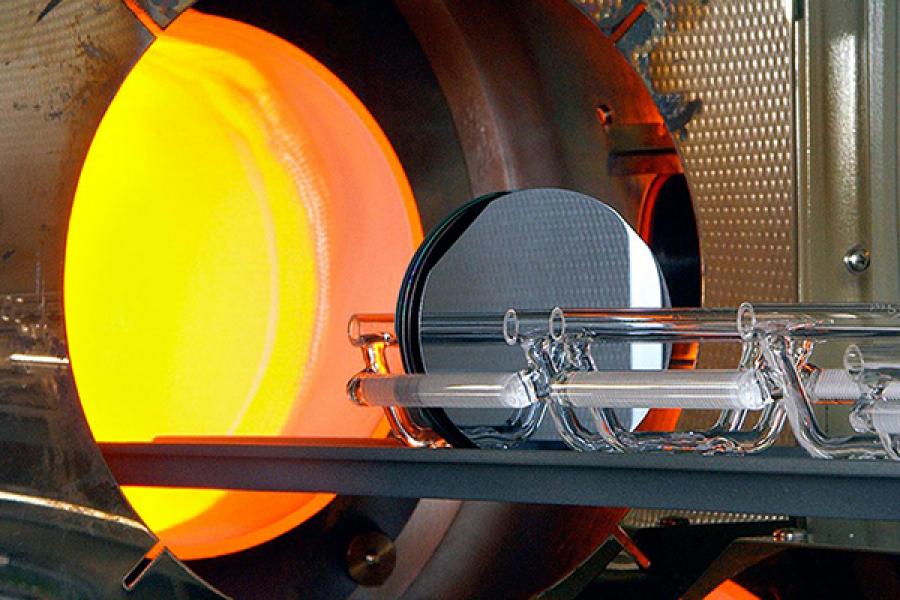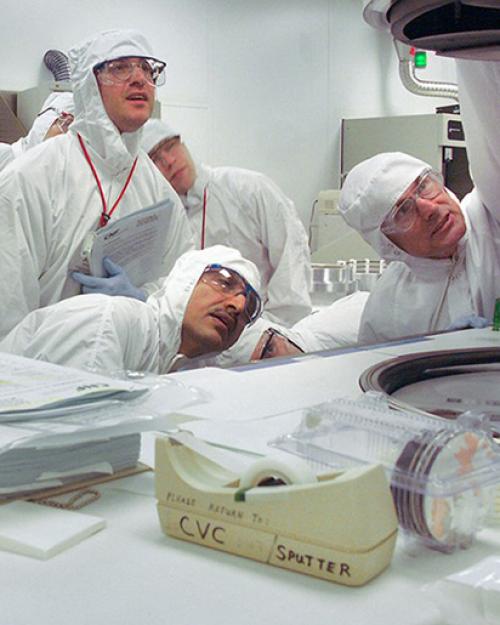The National Science Foundation has renewed its funding for the Cornell NanoScale Science and Technology Facility (CNF), with a five-year, $7.5 million grant to continue supporting academic and commercial research in nanofabrication – the design and manufacture of devices measured in nanometers.
The grant funds CNF’s participation in the National Nanotechnology Coordinated Infrastructure (NNCI), a network providing engineers and scientists from academia, government and industry with rapid, hands-on access to advanced nanofabrication tools and staff expertise they couldn’t afford on their own.
“We are halfway through the 10-year life of this program, and we are delighted to be a part of it,” said Christopher Ober, the Francis Norwood Bard Professor of Materials Engineering in the College of Engineering, and the Lester B. Knight Director of CNF. “CNF is the pioneer of nanofabrication facilities and we’ve been a constant for the last 40 years as the network has changed and grown. We’re thrilled to be opening up the next exciting chapter.”
CNF is one of 16 leading nanotechnology facilities around the country to partner in the network, which is also funded by the Empire State Development Corp.
“NNCI helps scientists and engineers in diverse fields solve challenging convergent research problems,” said Dawn Tilbury, NSF assistant director for engineering. “Research and education through NNCI will continue to yield nanotechnology innovations – from interconnects for quantum systems to high-resolution imaging to brain-implanted sensors – that bring economic and societal benefits to us all.”
Housed in Duffield Hall, CNF’s technology resources encompass more than 180 advanced instruments and services that include nanolithography, materials deposition and etching, along with special facilities for soft materials used for biomedical technology.
“This NSF award allows us to make our facility, which is one of the best in the world, available to users from across the country,” said Lynn Rathbun, laboratory manager. “We have a significant role in economic development for startup companies in Ithaca, startup companies around the country and even now and then major companies who want to try something novel that they don’t want to try at home.”
The facility hosts hundreds of projects a year, including the research behind Pacific Biosciences of California, a billion-dollar company that is helping create and maintain vaccines, therapeutics and diagnostics for COVID-19 using technology that was developed at CNF by then-graduate students Jonas Korlach, M.S. ’00, Ph.D. ’03, and Stephen Turner, Ph.D. ’00.
Ongoing projects include research from the labs of Paul McEuen, the John A. Newman Professor of Physical Science, and Itai Cohen, professor of physics, both in the College of Arts and Sciences, to develop microrobots that can enter human tissue to help scientists understand disease.
“This grant really helps us provide the opportunity for continued infrastructure that’s needed to enhance the whole nation’s nanotechnology research,” said Ron Olson, CNF director of operations. “It allows us to strengthen our capabilities for the next emerging technologies.”
The network also contributes to nanotechnology education at the professional, collegiate and K-12 levels. These programs include a partnership with 4-H, which is managed by Cornell Cooperative Extension in New York state. CNF has also established an exchange program to help talented undergraduates study abroad and encourage them to pursue graduate education in science and engineering.
“We help train the next generation of nanotechnologists,” Ober said. “We offer the services, we offer the ability to make tiny things and we enable industries, but we also train the workforce of tomorrow.”





